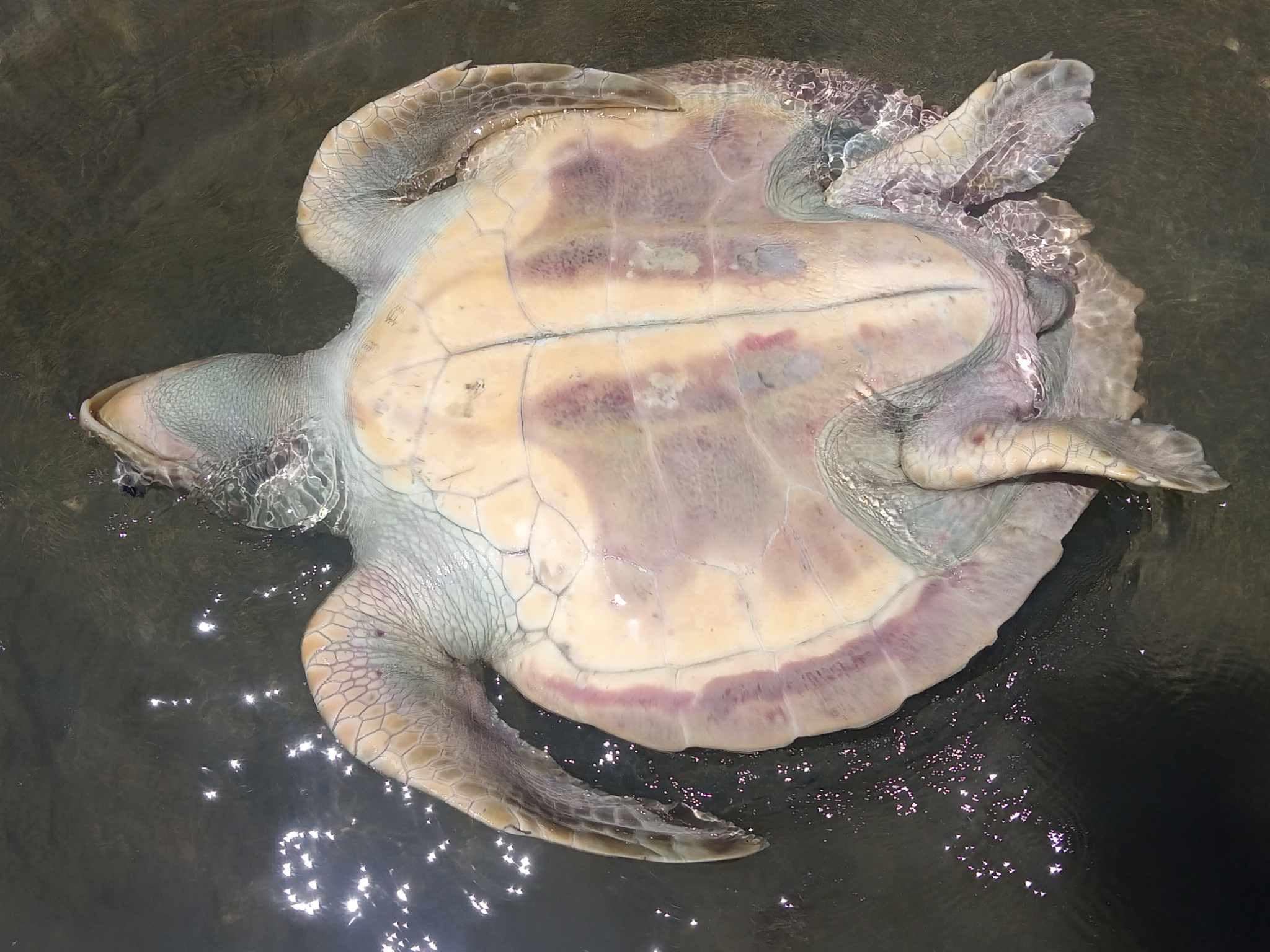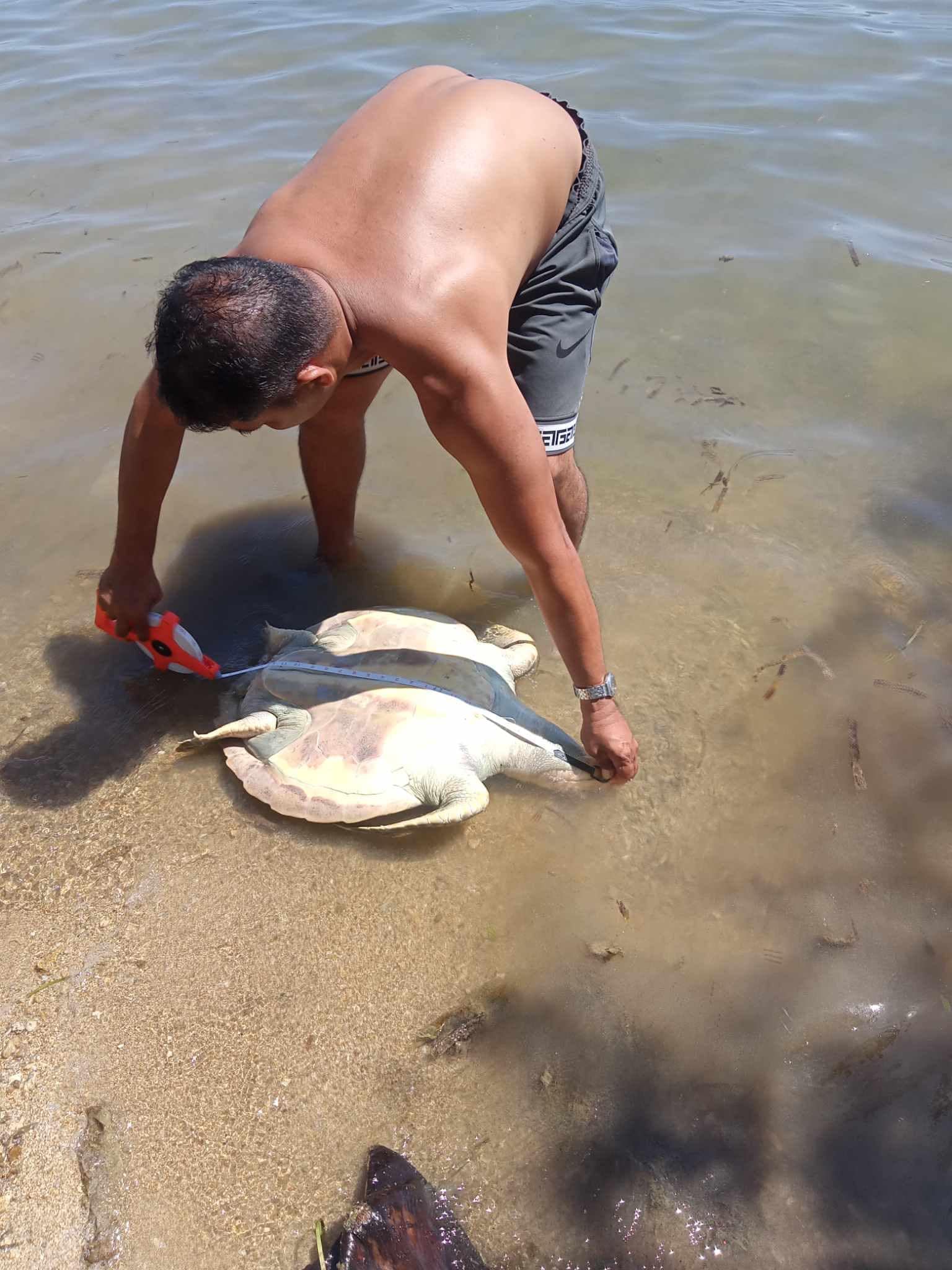Dead Olive Ridley sea turtle found in Quezon

The dead Olive Ridley turtle that was found on Friday, May 17. | PHOTO CONTRIBUTED BY ROMMEL ORDILLANO
LUCENA CITY — An Olive Ridley sea turtle (Lepidochelys olivacea), locally known as “pawikan,” was found dead along the coast of Tayabas Bay in Agdangan, Quezon on Friday, May 17.
“The marine turtle had wounds around the neck area, signs of another victim of stationary fish traps sunk into the bottom of the bay,” Jay Lim, project officer of Tanggol Kalikasan (TK), a public interest law office that advocates environmental protection, posted on his Facebook page Sunday, May 19.
Lim said the dead turtle was found by Rommel Ordillano, a village fish warden, at around 11:30 a.m. on Friday in Barangay (village) Kanluran Calutan.
READ: Olive Ridley sea turtles spotted mating in Sarangani Bay
The animal measures 30 inches long and 21.6 inches wide. The sea turtle was buried on the shore of the bay.
Article continues after this advertisementCiting information from local fishers, Lim said there were no sunk “baklad” or huge stationary fish traps in Agdangan municipal waters.
Article continues after this advertisement“The turtle was trapped in other parts of the bay,” he told the Inquirer in a private message.

A fishery official in Agdangan, Quezon measures the dead Olive Ridley turtle that was found Friday, May 17, for documentation. | PHOTO CONTRIBUTED BY ROMMEL ORDILLANO
Olive ridley turtles are classified in the International Union for Conservation of Nature’s (IUCN) Red List of Threatened Species as “vulnerable” due to a decline in population.
Republic Act No. 9147 (Philippine Wildlife Resources Conservation and Protection Act) prohibits hunting, selling, killing, and collecting the eggs of endangered species.
TK has long been informing fishers that the presence of “baklads” at the bottom of the sea is a very serious threat to the survival of the marine turtles.
READ: 55 baby Olive Ridley turtles released to sea in Sorsogon
Lim said they also recorded numerous beaching of dead turtles from Tayabas Bay that suffocated after getting entangled in the fish traps.
He reiterated their urgent call to the local government and coastal village officials to act decisively to stop illegal fishing in Quezon seas to save the turtles and other marine lives from extinction in local water.
“They are the authorities on ground zero. They know all those involved in illegal fishing in their respective areas,” Lim said.
Thirty-four of Quezon’s 42 towns are coastal—17 along Lamon Bay in the Pacific Ocean, 12 off Tayabas Bay facing the West Philippine Sea and five along the Ragay Gulf in the Bicol peninsula.